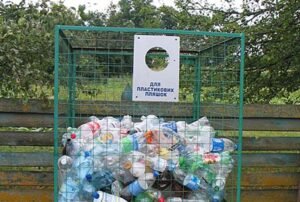
August 29, 2017; ACLU
Accountability is a cornerstone of American government and advocacy work, but the very concept is under attack this week as the Trump administration takes steps to distance the government from its treatment of immigrants.
First, President Trump pardoned Arizona Sheriff Joe Arpaio, whose well-documented abuse of immigrants and defiance of federal court orders have made him the face of hardline anti-immigrant sentiment. Then, according to the American Civil Liberties Union (ACLU), “Immigration and Customs Enforcement [ICE] recently asked the National Archives and Record Administration (NARA)…to approve its timetable for retaining or destroying records related to its detention operations.” Together, these actions send the message that the Trump administration does not intend to safeguard the human rights of immigrants.
Victoria Lopez, Senior Staff Attorney for the ACLU National Prison Project, writes, “This may seem like a run-of-the-mill government request for record-keeping efficiency. It isn’t. An entire paper trail for a system rife with human rights and constitutional abuses is at stake.”
ICE formally requested approval of its plan to destroy “records related to detainees, including incidents of sexual abuse and assault, escapes, deaths while in agency custody, telephone rates charged to detainees, alternatives to detention, logs and reports on status of detainees and detention facilities, and location and segregation of detainees.” Timelines for destruction, ranging from three to 20 years, depend upon the type of report.
An analysis of documents obtained through Freedom of Information Act (FOIA) requests by CIVIC, a national advocacy organization, found thousands of complaints of physical and sexual abuse lodged against ICE since 2010. Daily Kos noted:
Ten undocumented immigrants have died while in Immigration and Customs Enforcement (ICE) custody this fiscal year, including three immigrants who died in a private detention facility in the span of only three months. In one New Jersey jail where an undocumented man essentially bled to death this past spring, 121 people filed medical grievances over a two-year period and “the jail took corrective action in fewer than 3 percent of those cases.”
Now, thanks to ICE’s request, the records of all these cases may be destroyed, eliminating any opportunity for future justice, or even for advocacy groups to track what’s going on. According to the ACLU, “NARA has provisionally approved ICE’s proposal and its explanations for doing so are troubling. In cases of sexual assault and death, for example, NARA states that these records ‘do not document significant actions of Federal officials.’” Do NARA and the Trump administration simply deem actions involving immigrants insignificant?
According to CIVIC’s analysis, only 2.4 percent of the complaints against DHS agencies (which include ICE) have been investigated. ACLU’s Lopez told VICE, “Many of these records are still particularly relevant for being able to conduct review and oversight of the agency and how they run their detention operations.” Destroying the records means that those investigations will never take place, and the abuses of immigrants in detention will simply go unpunished—which is what many detainees assume will happen anyway. Rebecca Merton, Independent Monitor and Program Coordinator of CIVIC’s National Visitation Network, said, “The data is particularly disturbing given that rape and sexual assault are known to be highly underreported in immigration detention facilities due to fears of retaliation, social isolation, language barriers, and the knowledge that allegations are not seriously investigated.”
Sign up for our free newsletters
Subscribe to NPQ's newsletters to have our top stories delivered directly to your inbox.
By signing up, you agree to our privacy policy and terms of use, and to receive messages from NPQ and our partners.
Then again, if Trump’s pardon of Arizona Sheriff Joe Arpaio, who was convicted for contempt of court, is an indication, even when investigations happened and the abusers are convicted, it seems President Trump will ensure that justice is not served. According to Rolling Stone,
Arpaio erected an outdoor jail in Phoenix known as Tent City that he himself referred to as a “concentration camp”…Arpaio also had critics in government and the media arrested, resulting in the county having to make further payouts… The court found that Arpaio’s practice of having individuals stopped on the basis of race violated the Fourth Amendment’s prohibition of unreasonable searches and seizures and the 14th Amendment’s Equal Protection Clause. But Arpaio proceeded to misrepresent the ruling to his subordinates and continue the practices the court had enjoined. He then lied about it to the court, withheld evidence, launched an investigation into the judge and tried to get him disqualified on the basis of the investigation he had started.
That is quite a list, all going back to the idea that Arpaio appears to consider immigrants less than deserving of full human rights and protections. Reports have claimed that Arpaio is “proud” of his methods, that he “puts on the Food Network and the Weather Channel to torture [detainees]…these are outdoor tents and it’s 130 degrees…he wants them to see a different existence so they’ll go to Canada.” If ever accountability for the treatment of one’s fellow human beings was called for, it’s here.
But Trump pardoned Arpaio, claiming he was just “doing his job.” Like his “both sides” comment after the Charlottesville rally, this statement signals the president’s blatant disregard of human rights for nonwhite people and his unwillingness to see the human side of race issues.
The pardon is troubling for many reasons. Trevor Noah of The Daily Show said,
Remember how the three branches of government are supposed to be equal? Well, convicting someone of contempt is the one and only way the judicial branch can put muscle behind its decisions. So, when the president of the United States steps in and pardons someone’s contempt conviction, he’s essentially rendering the courts powerless.
Like the destruction of ICE records, the pardon makes it impossible to hold federal officers accountable for their behavior.
Will activists step in and try to preserve ICE records, like they did for climate data when it was feared that budget cuts would destroy scientific records? Will Arizonans try to elect officials that will hold their county officers accountable for immigrant treatment? More importantly, neither addresses the issue of accountability when it comes to protecting the human rights of detainees. For that, nonprofit advocacy groups are still our best hope.—Erin Rubin













